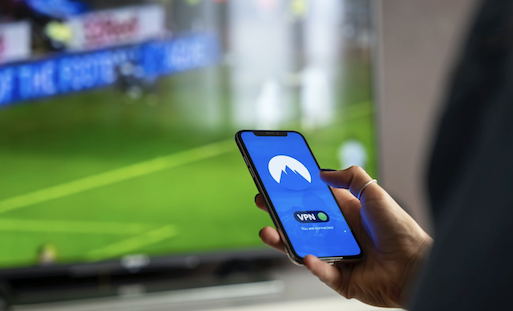Is Torrenting Legal Worldwide?
2021.12.20
Although there are a few countries around the world that have shut down all torrenting sites (China, Australia, US, Russia, to name a few), in many other countries torrenting is completely legal. Of course, if you’re using it to pirate movies, songs, games, or anything that can be considered copyright infringement, it becomes illegal.

So, if you don’t know your country’s legal stance on torrenting, you might get in trouble if you’re caught doing it. In this case, VPN services can help to keep torrenters safe.
4 Major Risks of Torrenting
When you download a torrent, you become part of the torrent swarm - the total number of users downloading and uploading a torrent file. Inside the torrent app, that just looks like a list of user IP addresses and the regions they’re from.
Well, that means anyone who uses a torrent client to download or upload a file can see your IP address if you’re also interacting with that file.
Having your IP address revealed exposes you to a few major risks.
1. You’re Targeted by Copyright Lawyers
In the US and Canada for example, studios can hire lawyers to infiltrate torrent swarms and collect IP addresses. Once the studios know your IP address, they can find out who your ISP is. After that, they send your ISP threatening letters asking for your contact information.
And from this point onward, your ISP can do one or two things.
On the one hand, they can give you a warning, saying they don’t tolerate torrenting. Next time this happens, they’ll throttle your torrenting speeds so you can’t download files anymore or, even worse, they’ll cancel your account
On the other hand, if your ISP doesn’t want to deal with this kind of problem, they'll just share your personal details (name and address) with those lawyers. They can then contact you directly. And you can guess what might happen next - you’re at risk of being sent to court and sued for fees up to $10,000 (depending on what you’re torrenting).
2. You’re Targeted by Copyright Trolls
Not just studios are after your IP address, but copyright trolls are searching for it too!
Their business goes like this - they use the torrent client, take your IP address, and pressure your ISP until they get your personal details. After that, copyright trolls threaten to take you to court for $10,000 unless, of course, you agree to settle for a smaller amount (like $3,000).
So basically, this is just a huge scam but it’s still scary and annoying if and when it happens.
3. You’re Targeted with DDoS Attacks
When we say that everyone can see your IP address, we mean literally everyone - including people that don’t like you or random online pranksters.
By getting your IP address, they can perform DDoS (Distributed Denial-of-Service) attacks. This means that they’ll flood your network with unwanted traffic to the point they overload it and you don’t have access to the internet anymore.
And the worst thing about it is that you might have to wait a few hours until everything goes back to normal. All of this because someone saw your IP address!
4. You Might Get Punished by Your ISP
Your ISP knows you’re torrenting before anybody else, be they lawyers, scammers, or pranksters. And that’s because they separate normal traffic from torrenting traffic by focusing on these 3 key factors:
• High bandwidth usage
• Multiple simultaneous upload streams
• Several TCP connections
If your ISP is anti-torrenting, they can throttle your torrenting speed so you can’t download torrent files anymore. Worst case scenario - your ISP can cancel your contract if you're breaching their Terms of Services.
How Can a VPN Keep You Safe When You’re Torrenting?
A VPN’s main job is to hide your IP address and encrypt your internet traffic.
Anytime you’re accessing a webpage, the information travels from your device to the site through the ISP’s server so they know everything you do on the internet.
But if you use a VPN, your traffic will be rerouted and encrypted through a secure VPN server. That means your data becomes unreadable and nobody can see your real IP address.
So, if you’re in the UK and use a VPN to connect to a server in Spain, you can torrent without any problems. And that’s because your ISP can see that you’re connected to a VPN, but they can’t see what you are doing on the internet from that point forward.
Do VPNs Allow Torrenting?
Not all of them - so better check their website or ask the support reps.
But the good news is many top VPNs provide great torrenting support. NordVPN allows P2P traffic on 4,400+ servers and ExpressVPN supports torrenting on all its 3,000+ servers. CyberGhost VPN also allows torrenting but only on dedicated P2P servers - but they have a lot of servers in a lot of countries, so if you decide to become a ghostie you have nothing to worry about.
And all those top VPNs are very safe for torrenting. They secure your traffic with 256-bit AES encryption (bank-grade security), no-logs policies (they don’t log your IP address and traffic), and kill switches (they prevent accidental data leaks).
What Happens If I Use VPNs that Don’t Support Torrenting?
If the VPN you’re using doesn’t support torrenting, your downloads will stall. Alternatively, you'll have very slow download speeds because the VPN throttles your P2P connections.
Conclusion
Every country has its own regulations when it comes to torrenting. In some countries, it’s completely illegal, while in other places torrenting is overlooked. However, in countries like Switzerland or Spain, it’s completely legal as long as you’re not making a profit.
But even if your country doesn’t criminalize torrenting, having your IP address exposed through P2P apps is no joke. So always use a VPN to hide it!
More Articles
Copyright © Fooyoh.com All rights reserved.